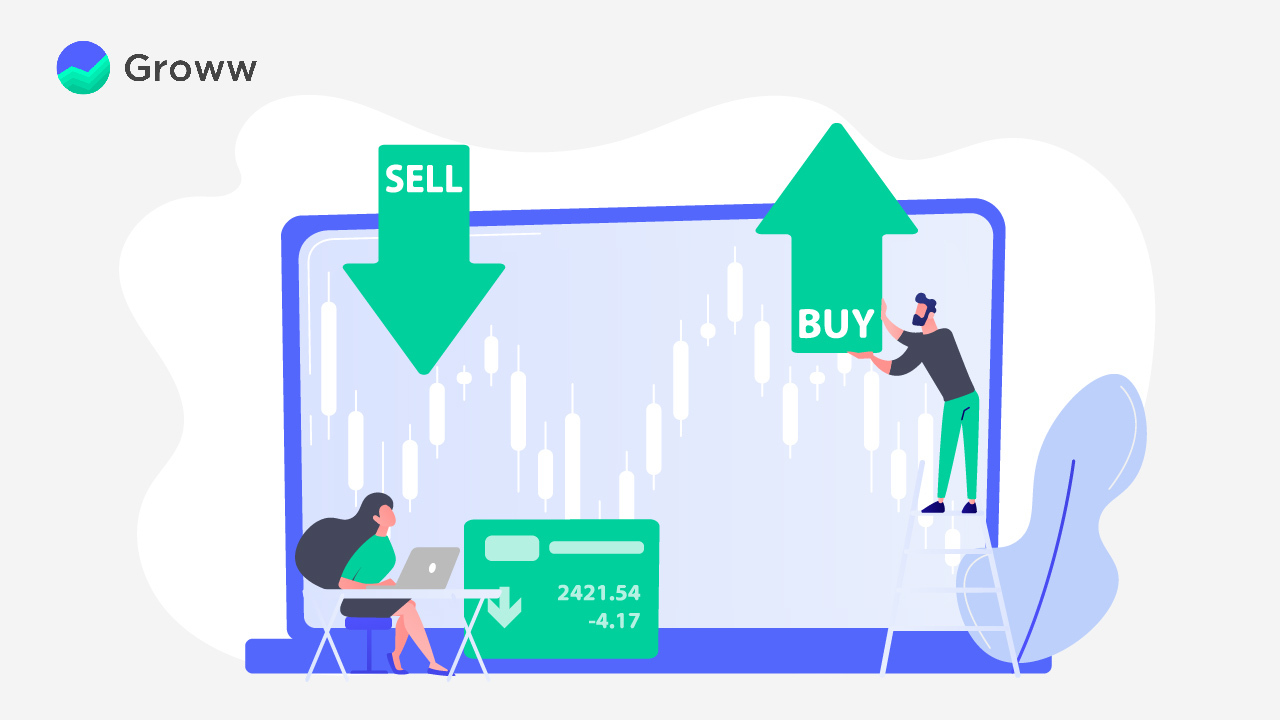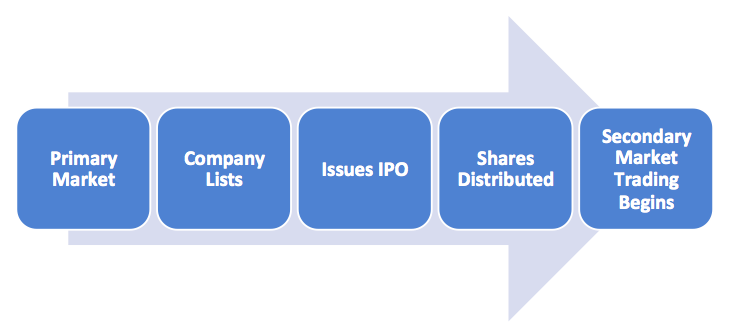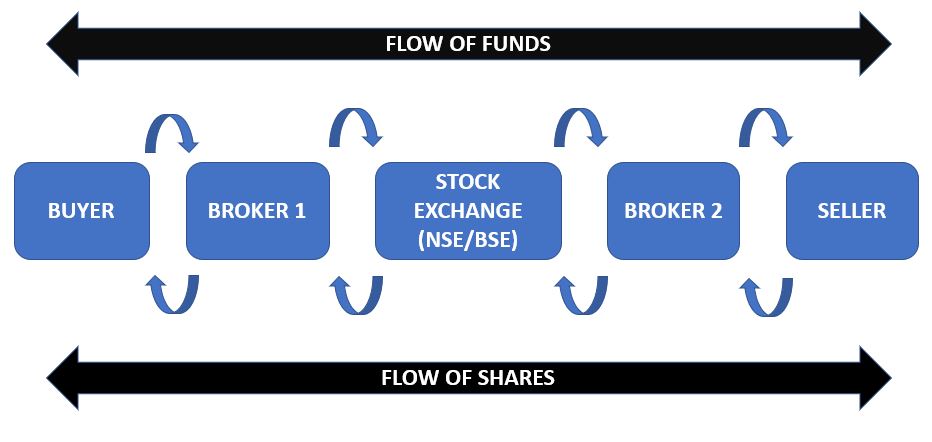How Does the Stock Market Work?

It is important to invest money in the right avenues for wealth creation.
Stock market investment is one such lucrative option that rewards investors with high returns over the years. But to make this kind of return, it is important to understand how the equity market works.
Here is what you should know.
Participants of the Stock Market
The stock market is an avenue where investors trade in shares, bonds, and derivatives. This trading is facilitated by stock exchanges. It acts as a platform, a marketplace, that connect buyers and sellers.
To understand how share market works, it is essential to understand its participants. Four key participants involved in the Indian stock market are-
1) Securities Exchange Board of India (SEBI)
SEBI is the regulator of stock markets in India. It ensures that securities markets in India work efficiently and transparently. It also protects the interests of all the participants, and none gets any undue advantages.
SEBI lays down regulatory frameworks that exchanges, companies, brokerages, and other participants must abide by to protect investors’ interests.
2) Stock Exchange
The stock market allows investors to trade shares, bonds, and derivatives. This trading is facilitated by stock exchanges. In India, there are two primary stock exchanges.
- Bombay Stock Exchange (BSE) – Sensex is its index
- National Stock Exchange (NSE) – Nifty is its Index
3) Stockbrokers and Brokerages
A broker is an intermediary (a person or a firm) that executes buy and sell orders for investors in return for a fee or a commission.
4) Investors and Traders
Stocks are units of a company’s market value. Investors are individuals who purchase stocks to become part owners of the company. Trading involves buying or selling this equity.
Markets
To understand how stock market works in India, the next thing is to learn about primary and secondary markets
1) Primary Markets
The primary stock market provides an opportunity for issuers of stocks (companies) to raise capital to meet their investment requirements. And to discharge liabilities.
A company lists its shares in the primary market through an Initial Public Offering or IPO. Through an IPO, a company sells its shares for the first time to the public. An IPO opens for a particular period. Within this window, investors can bid for the shares and buy them at the issue price announced by the company.
Once the subscription period is over, the shares are allotted to the bidders. The companies are then called public because they have given out their shares to the common public.
For this, companies need to pay a fee to the stock exchanges. They are also required to provide all important details of the company’s financial information, such as quarterly/annual reports, balance sheets, and income statements, along with information on new projects or future objectives to the stock markets.
2) Secondary Market
The last step involves listing the company on the stock market, which means that the stock issued during the IPO can now freely be bought and sold. The secondary stock market is where shares of a company are traded after being initially offered to the public in the primary market.
Trading in the Stock Market
Once listed on the stock exchanges, the stocks issued by companies can be traded in the secondary market. This buying and selling of stocks listed on the exchanges are done by stockbrokers /brokerage firms that act as the middleman between investors and the stock exchange.
Your broker passes on your buy order for shares to the stock exchange. The stock exchange searches for a sell order for the same share.
Once a seller and a buyer are found, a price is agreed to finalize the transaction. Post that, the stock exchange communicates to your broker that your order has been confirmed.
This message is then passed on to you by the broker. All this happens in real-time and in seconds.
Meanwhile, the stock exchange also confirms the details of the buyers and the sellers of shares to ensure the parties don’t default.
It then facilitates the actual transfer of ownership of shares from sellers to buyers. This process is called the settlement cycle.
Earlier, it used to take weeks to settle stock trades. But now, this has been brought down to T+2 days.
For example,
If you buy a stock today, the credit is given by the end of the day.
The stock exchange also ensures that the trade of stocks is honoured during the settlement.
If the settlement cycle doesn’t happen in T+2 days, the sanctity of the stock market is lost because it means trades may not be upheld.
Stockbrokers identify their clients by a unique code assigned to an investor.
After the transaction is done by an investor, the stockbroker issues him/her a contract note which provides details of the transaction, such as the time and date of the stock trade.
Apart from the purchase price of a stock, an investor is also supposed to pay brokerage fees, stamp duty, and securities transaction tax.
In the case of a sale transaction, these costs are reduced from the sale proceeds, and then the remaining amount is paid to the investor.
At the broker and stock exchange levels, there are multiple entities/parties involved in the communication chain, like the brokerage order department and exchange floor traders.
Pricing of Shares in the Stock Market
Demand and supply for a stock play an important role in the changes in share prices as well as in determining the price of a share.
▶️ Read here for more: Why do stock prices change
Just keep this small concept in your mind:
- When the demand for shares is more than supply, the price rises.
- When the demand for shares is less than the supply, the price falls.
The Indian stock exchanges, BSE and NSE, have algorithms that determine the price of stocks based on the volume traded, and these prices change pretty fast.
Happy Investing!
|
You may also want to know |
|
|
1. |
How to Invest in Share Market |
|
2. |
How Much Money Can You Make in Trading Stocks |
|
3. |
How to Buy Stocks Online |
|
4. |
How to Monitor Your Stock Portfolio |
|
5. |
How Long Should You Hold a Stock |
Disclaimer: This blog is solely for educational purposes. The securities/investments quoted here are not recommendatory.

